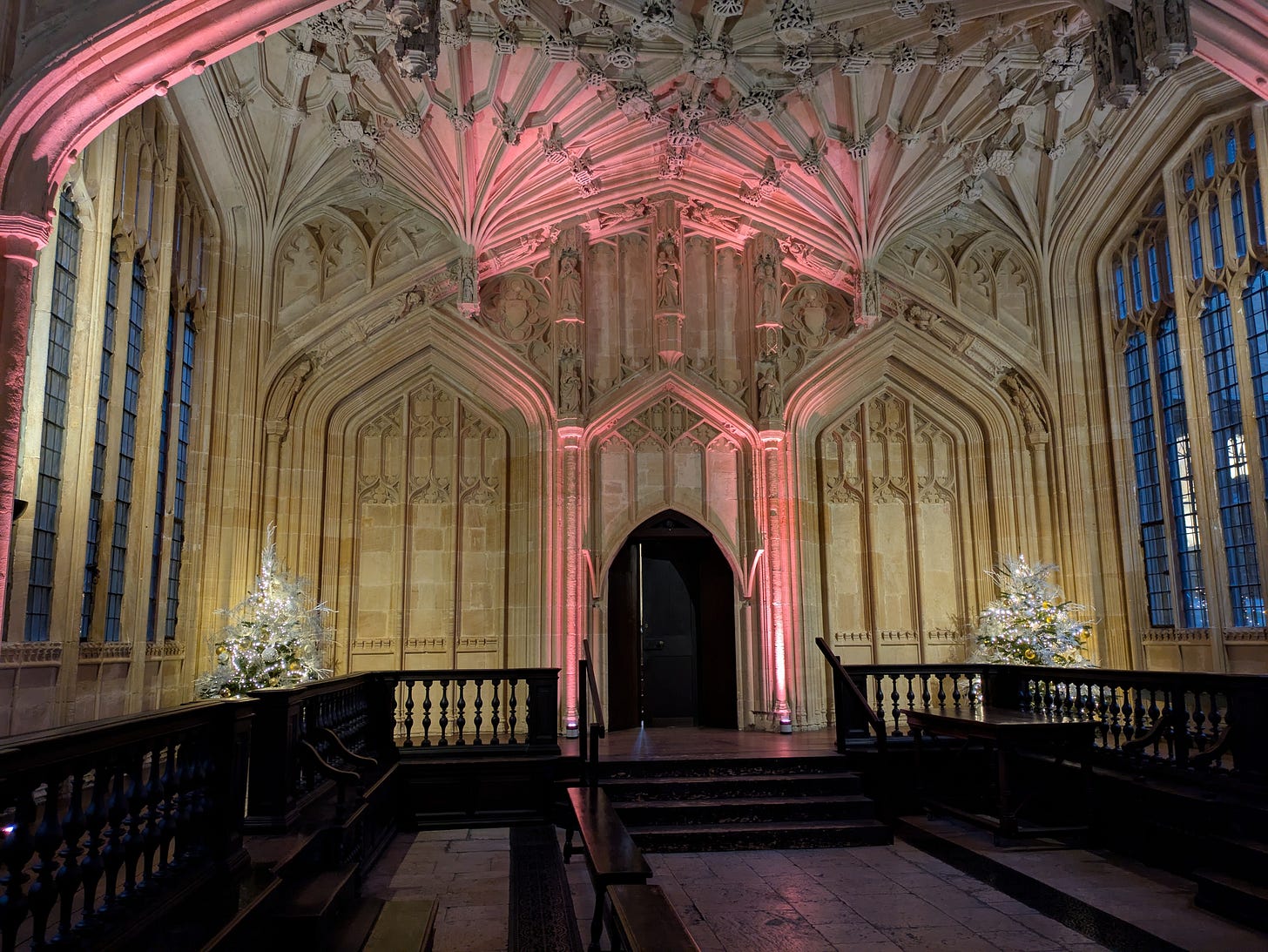
God in the Dock
By C.S. Lewis
Edited by Walter Hooper
Eerdmans, 1970 (third edition, 2014)
C.S. Lewis, during his younger years as an atheist, struggled with a rift between his materialist belief system and his deepest longings for meaning and love. Materialism asserted that life had no ultimate purpose; therefore, he wondered why he longed for meaning. Materialism also claimed that humans had a random, impersonal origin; therefore, Lewis wondered why he had such profound longings for personal relationships and love.
Once he came to see the intellectual beauty of Christian thought, Lewis found complete unity between his philosophical framework and his deepest personal longings. He soon saw that his new-found worldview also had implications for every area of life: relationships, work, economics, art, politics, science, and technology.
“Lewis struck me as the most converted man I ever met,” wrote Walter Hooper, who edited this compilation of Lewis’s essays and articles titled God in the Dock. “Christianity was never for him a separate department of life.… His whole vision of life was such that the natural and the supernatural seemed inseparably combined” (p. xiv).
As Lewis deepened his understanding of the Scriptures, he used his talents as a writer and thinker to engage in the world more intensely. He did not take shelter in a Christian subculture; rather, he used his pen and position as an Oxford and Cambridge professor to provide the nonbelieving world with winsome, creative, and intellectually rigorous opportunities to consider the implications of Christian theology.
“What we want is not more little books about Christianity, but more little books by Christians on other subjects—with their Christianity latent,” wrote Lewis in a 1945 paper (p. 91). “Our business is to present that which is timeless (the same yesterday, today, and tomorrow) in the particular language of our own age.”
During his career, Lewis found ways to “translate” scriptural theology so that skeptics and curious onlookers could understand it within their own contexts. He knew from personal experience that people often resisted faith in God because no one had yet helped them answer their valid intellectual questions.
So, he set out to fill that gap, giving all sorts of readers thoughtful material to chew on. He wrote to kids (The Chronicles of Narnia series), to fellow intellectuals (The Problem of Pain), and to “ordinary” people trying to survive during World War II (Mere Christianity and The Four Loves). He even wrote thousands of personal letters to friends and admirers. And he did all that while working full time as a renowned professor of literature.
Reading God in the Dock, we see the extent to which Lewis aimed to connect with people by entering their world. He did not expect skeptical audiences to come into the Christian subculture; rather, he felt responsible to build rapport among them and within their frames of reference.
Lewis believed that good thinking—to ask hard questions and use reason and the Scriptures to address them—was a central part of the Christian faith. And he lamented that churches had largely abandoned this principle.
“If the younger generation have never been told what the Christians say and never heard any arguments in defense of it, then their agnosticism or indifference is fully explained” he wrote (p. 116).
Lewis did not believe that everyone had to study formal philosophy to believe in God; he simply stated that all people have serious questions about God and that they need intellectual answers. He did not espouse a dry academic faith, but he did argue for the importance of using our minds. If skeptics only encounter Christian emotionalism, then people would be stuck in agnosticism. For these reasons, Lewis spent much of his life working, he said, as a “translator” who attempted to bring rigorous scriptural thought to an unbelieving world and an unthinking church (p. 199).
Reading God in the Dock, because it is a compilation of essays, can feel like one is surfing across Lewis’s expansive and brilliant mind. He covers myriad topics. He writes about the purpose of work, miracles, the Christian foundations of the scientific method, and the problem of evil. He writes about his disdain for government-imposed religious teaching, the dangers of a technocracy, and the shallowness of a self-interested economy. And he discusses perplexing questions surrounding prayer.
Taken as a whole, the book encourages us to think carefully about life, because the stakes of being human are so high. We need to think well to live well.
In May 1963, just six months before Lewis died, he held an interview with Sherwood Wirt. He summed up life this way.
“The world might stop in ten minutes,” Lewis said. “Meanwhile, we are to go on doing our duty. The great thing is to be found at one’s post as a child of God, living each day as though it were our last, but planning as though our world might last a hundred years” (p. 295).
Quote to Ponder
“I haven’t always been a Christian. I did not accept it to make me happy. I always knew a bottle of Port would do that. If you want a religion to make you feel really comfortable, I certainly don’t recommend Christianity. I am certain there must be a patent American article on the market which will suit you far better.” — C.S. Lewis, comments at an April 1944 presentation for business leaders at the Electric and Musical Industries company in Middlesex (reprinted in God in the Dock, p. 36).



